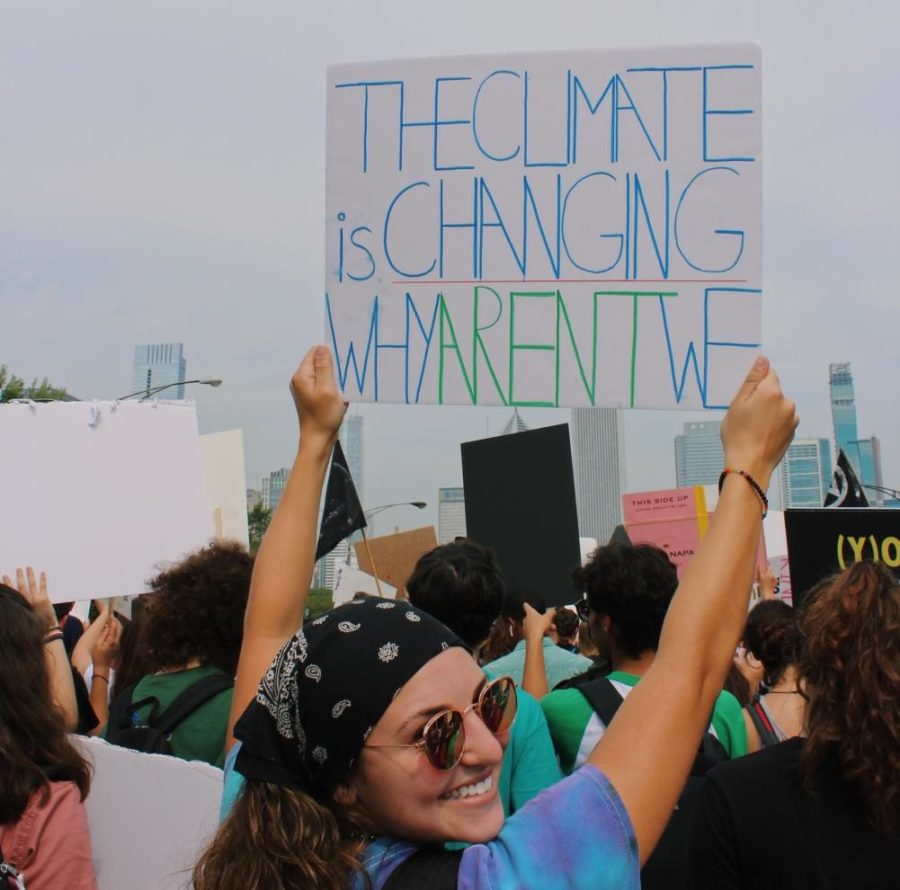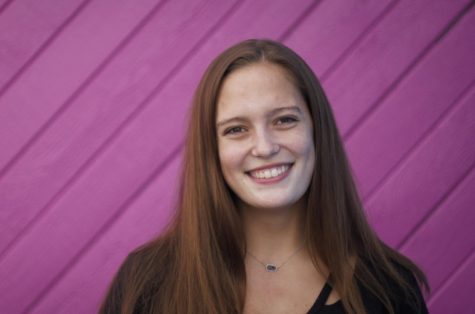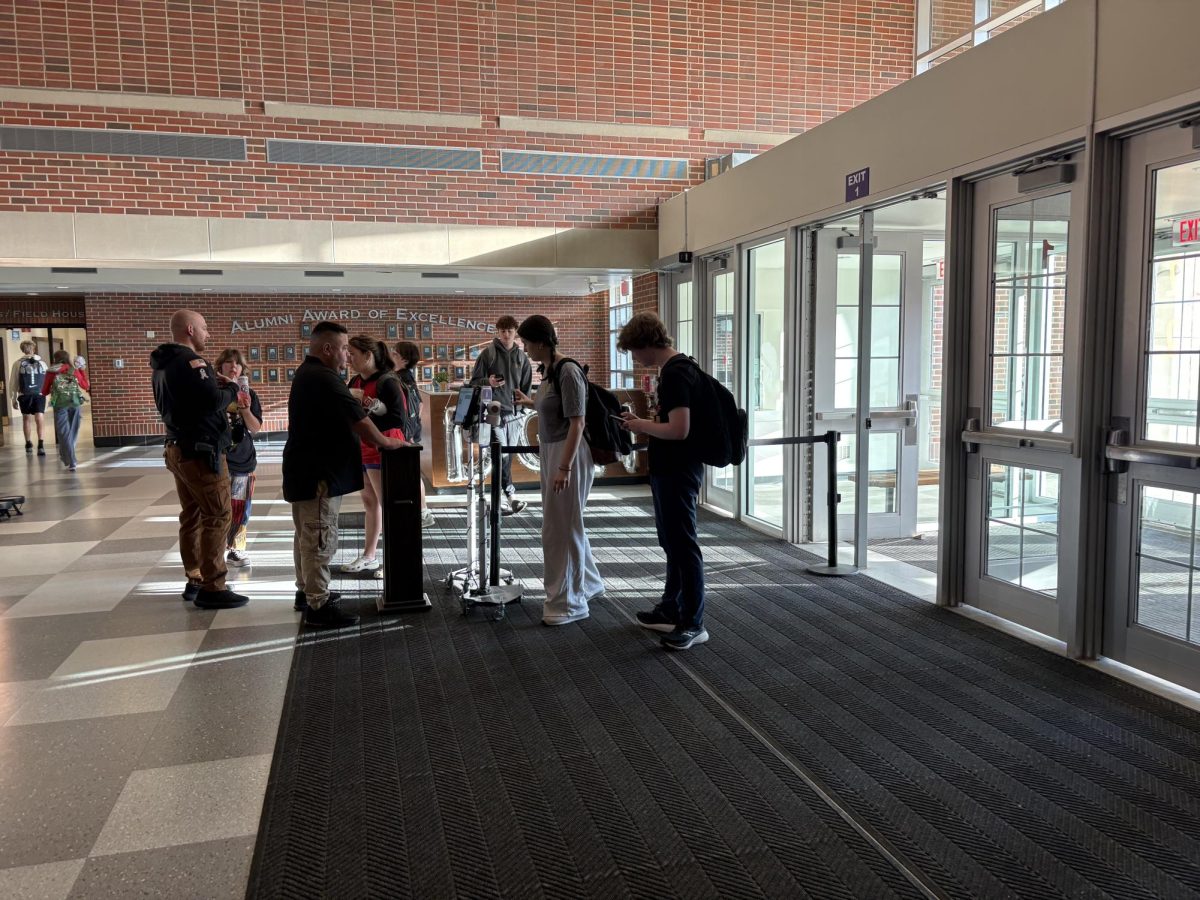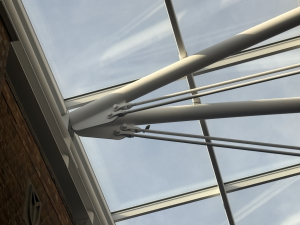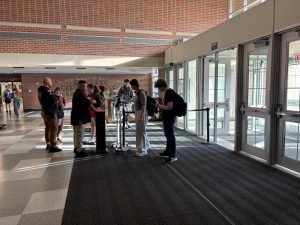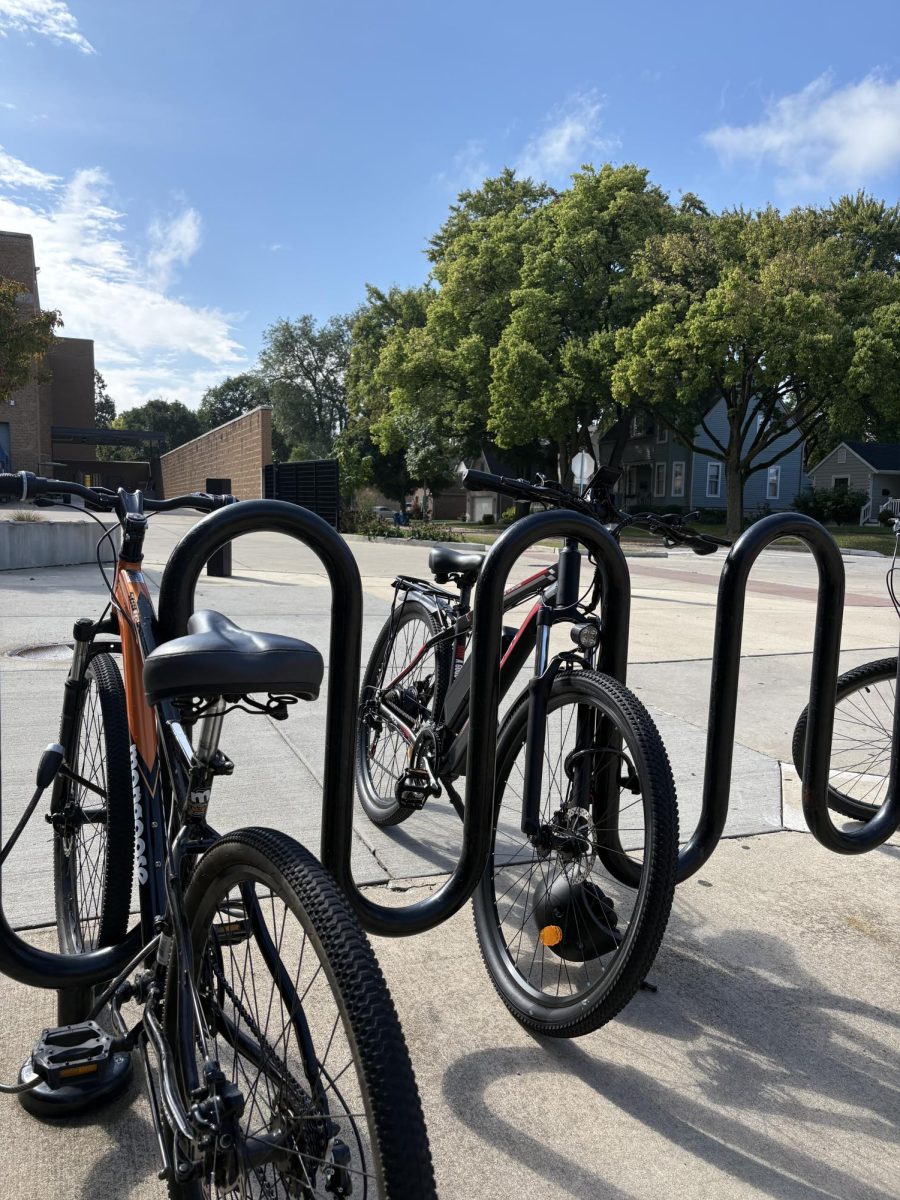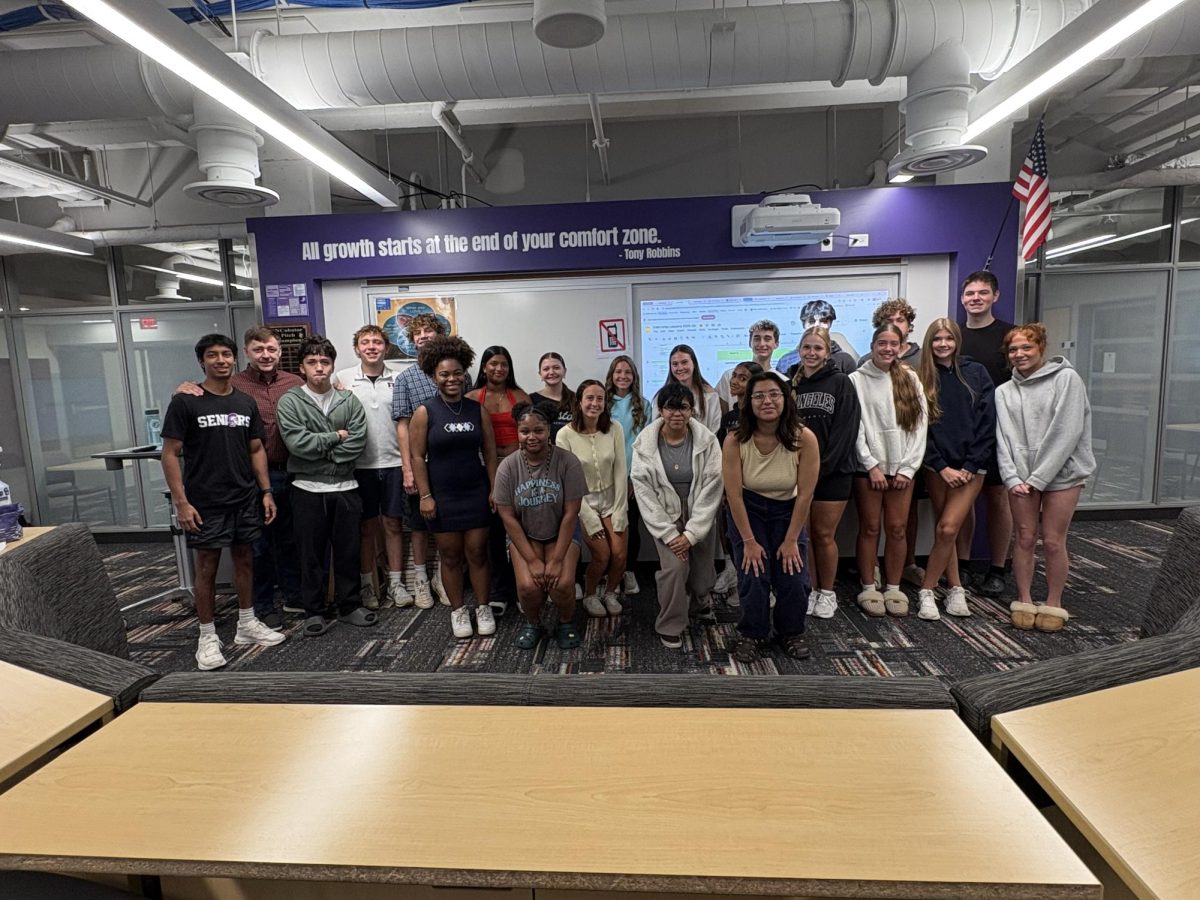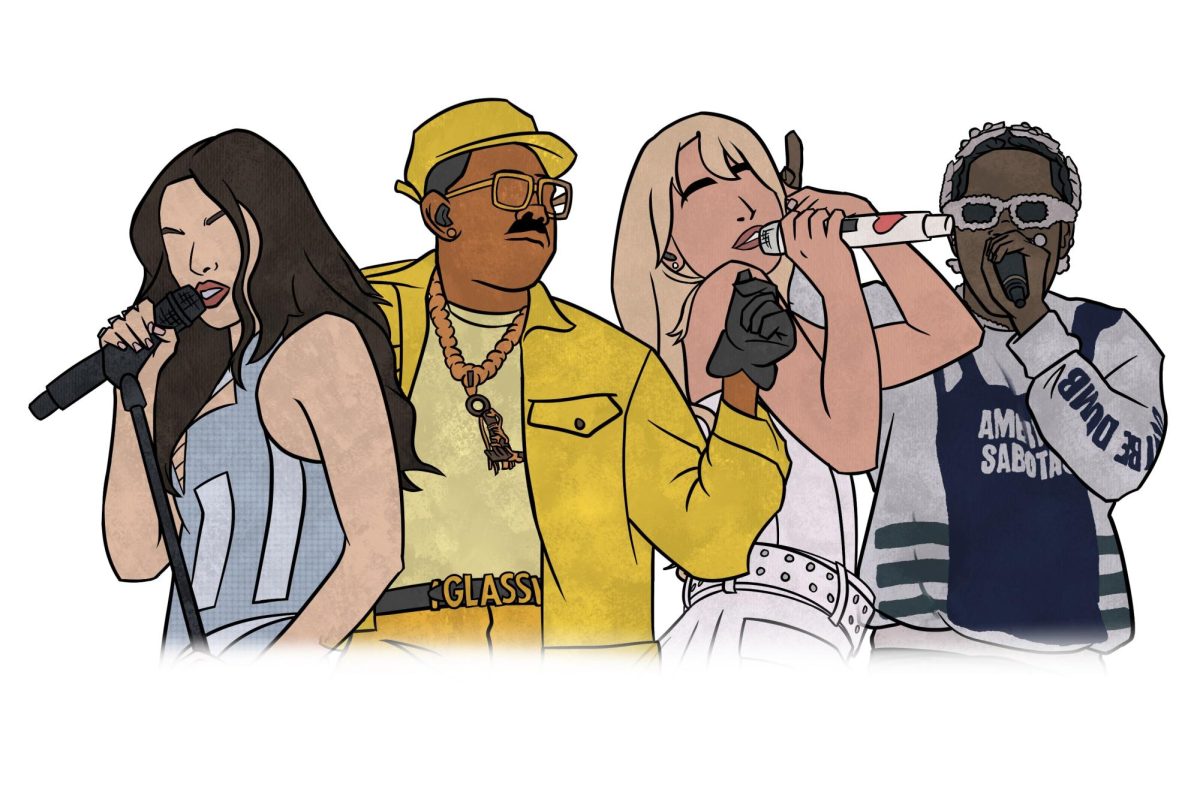‘History has its eyes on us:’ DGN students protest at the Global Climate Strikes to demand climate change reform
Photo courtesy of Maggie Lehnherr
STRIKING FOR CHANGE: Maggie Lehnherr (12) attends the Chicago Climate March.
October 18, 2019
Days before the UN Summit on Climate Change, millions of students from over 150 countries missed school and took to the streets on Sept. 20 to demand that their governments to take more drastic steps in combating climate change.
More than 800 marches were planned in the U.S, and in the Chicagoland area thousands of students joined climate change activists in the worldwide Global Climate Strike.
Instead of attending the school day, sophomores Cate Stocki and Juliana Gomien took part in the protest at Grant Park in downtown Chicago.
Gomien spoke about her decision to protest and why it’s important to her future.
“[Younger generations] need to make changes in order to sustain life on earth. The earth needs some relief from the carbon we have been putting in the atmosphere and we need to bring it back down,” Gomien said. “History has its eyes on us.”
The main organizers for the Chicago strike were the Illinois Youth Climate Strike Organization. Most of the marches were Clean Energy Act focused and pressed for the passing of the act. The act will commit the city to 100% renewable energy by 2050.
“It was hard to hear most of the speakers from where my friend and I were, but many things were apparent such as the need to pass the Clean Energy Jobs Act,” Stocki said, “the need to establish policy on a federal level that is not based on denial and to force corporations to address the crisis. The transition to clean energy is possible, as long as people in politics understand the importance of beginning the transition now.”
Stocki believes that this is a worldwide issue and that every person should join the cause.
“The more you post about it and talk about it, the more the urgency of the crisis is stressed.” Stocki said.
The strikes were inspired by the acts of 16-year-old Swedish activist Greta Thunberg who rose to attention through her protests “Friday for Future” throughout the past year. Thunberg spoke at the U.N. Climate Action Summit.
Most teens who participated in the marches felt motivated by her impact.
“[Thunberg] is a courageous teen activist who takes climate change more seriously than anyone else I’ve ever encountered,” senior Sofia Beasley said, “I felt like, wow if this girl can take action and speak out against something that she believes is a problem, then so can I.”
Beasley, along with senior Maggie Lehnherr, attended the march across the streets of downtown Chicago. Unlike the gathering in Grant Park, Lehnherr and Beasley described that the march covered a wide variety of topics through the use of chants and signs.
“We screamed and chanted to make sure that everyone could hear what we were standing for,” Beasley said, “We talked, screamed really, that students will get out and vote in the next election. Climate change is a time-sensitive issue and action needs to be taken now.”
Students were joined by teachers, parents, and many others in the worldwide strike.
“[Diversity in attendants] ranged from babies, probably a few months old to senior citizens with walkers. It showed that people of all age groups truly cared about climate change and taking a stand against it,” said Beasley. “Not only were there people of all ages, there were people of all races and ethnicities and genders. That is what made it even more empowering to be apart of a group like that.”
Lehnherr spoke about her reasoning behind her choice to take a stand and attend the strike.
“We’re the ones who are going to be living in this environment,” Lehnherr said, “it’s important for [younger generations] to realize and take action.”
Lehnherr has changed some lifestyle habits to help in reducing worldwide plastic consumption, such as using reusable water bottles and eating less meat.
“Individually, we all do things that are easier. How we take advantage of plastic bags and water bottles, we are oblivious to the things we do.” Lehnherr said, “I don’t think people understand that the little things actually makes a bigger cause to the environment.”
Joseph hopes to see a change of usage of paper at DGN and would like the student population to take into account the mass consumption.
“So much paper is printed and goes unused.” Joseph said, “I know that a lot of students like to have hard copies of things, but I wished we at least had the option of just having electronic copies instead because I think that would significantly reduce our collective paper consumption as a school.”


